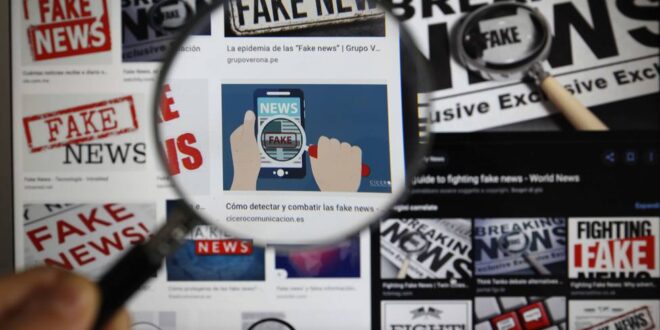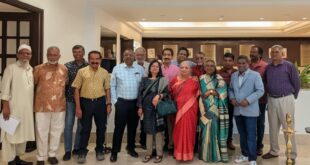Combatting misinformation requires a collective effort from journalists, tech platforms, policymakers, and the public to promote media literacy and critical thinking. The Osmania University in collaboration with US Consulate Hyderabad have trained Urdu journalists in a first of its kind fact checking course.
HERE are some excerpts from it focusing on how fake news has had negative impacts:
1. Health and Safety Consequences: During the COVID-19 pandemic, numerous false claims about cures and preventive measures were spread as fake news. For instance, some misinformation suggested that certain drugs or household items could treat or prevent the virus. Believing in such unverified information, people may have put their health at risk by not following proper medical advice and safety measures.
2. Political Manipulation: Fake news can be exploited to influence public opinion and manipulate elections. In recent years, there have been instances where false stories, fabricated quotes, and misleading images were used to spread disinformation about political candidates or parties. Such misinformation can sway voters, erode trust in democratic processes, and undermine the legitimacy of election outcomes.
3. Social Unrest: Misinformation has also played a role in inciting social unrest and violence. For example, rumors and fabricated stories spread through social media platforms have led to riots, communal tensions, and mob violence in various parts of the world.
4. Stock Market Manipulation: False information about companies or their products can have significant financial implications. Misleading news stories or rumors can cause stock prices to fluctuate dramatically, affecting investors and destabilizing markets.
5. Damage to Reputations: Fake news can tarnish the reputation of individuals and organizations. Baseless accusations, fabricated scandals, and manipulated images or videos have led to severe damage to the personal and professional lives of innocent individuals.
6. Misleading Scientific Information: In the field of science, fake news can lead to misguided decisions. For instance, misinformation about climate change, vaccination, or GMOs (Genetically Modified Organisms) can result in wrong policy choices or actions that are detrimental to the environment or public health.
7. Impact on Journalism: The spread of fake news undermines the credibility of legitimate journalists and media outlets. When false information is given the same weight as verified news, it becomes challenging for the public to distinguish between reliable sources and unreliable ones, eroding trust in journalism as a whole.
Senior journalists and industry veterans including Prof Stevenson, Head of Department of Mass Communication and Journalism at Osmania University, former Press Council of India Member Mr. M. A. Majid and Times of India Editor (Investigations) Mr Sudhakar Reddy played a key role in conceiving the unique course. The course was led by Lead Trainer and International Fact Checker Mr Sudhakar Reddy in collaboration with distinguished faculty from all across India.
These examples shared by the experts illustrate the real-world consequences of fake news, emphasizing the crucial need for journalists and media consumers to be vigilant about fact-checking and verifying information before accepting it as truth.
 Gawah (The Witness) – Hyderabad India Fearless By Birth, Pristine by Choice – First National Urdu Weekly From South India – Latest News, Breaking News, Special Stories, Interviews, Islamic, World, India, National News
Gawah (The Witness) – Hyderabad India Fearless By Birth, Pristine by Choice – First National Urdu Weekly From South India – Latest News, Breaking News, Special Stories, Interviews, Islamic, World, India, National News





